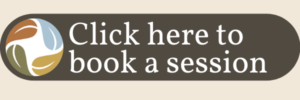
As I’m returning from lunch with one of my favorite people, a friend of mine, I’m contemplating this interesting concept: friendship.
We often spend a lot of energy, and place a lot of emphases, on romantic relationships. We often believe that finding the “right” romantic partner will make us happy and fulfilled. However, research shows that friends are actually even more important to our psychological welfare. Friends bring more happiness into our lives than virtually anything else. Friendships have a huge impact on our mental health and happiness. Good friends relieve stress, provide comfort and joy, and prevent loneliness and isolation. Developing close friendships can also have a powerful impact on our physical health. Friends are even tied to longevity. But close friendships don’t just happen, and many of us struggle to meet people and develop quality connections. Whatever your age or circumstances, it’s never too late to make new friends, reconnect with old ones, and greatly improve your social life, emotional health, and overall well-being.
 Meeting new people…
Meeting new people…
We tend to make friends with people whom we see regularly: people we go to school with, work with or live close to. The more we see someone, the more likely friendship is to develop. Look at the places you frequent as you start your search for potential friends. (Proximity has been, and is still, a key feature in our relationships.) Another key element in a friendship is common interests. We tend to be drawn to people who are similar, with a shared hobby, background, career, or kids the same age. Think about the activities you enjoy or the causes you care about. Where can you meet people who share the same interests?
Taking the next step…
Oftentimes, we will have people with whom we exchange small talk and pleasantries but still feel the absence of friendship. We may have many acquaintances but feel we are lacking in friendship. If you have someone with whom you are familiar, and you think you may want to take the next step toward friendship, self-disclosure is key. The main thing that differentiates an “acquaintance” from a “friend” is intimacy. This does not mean that you need to tell your potential friend everything the minute you decide you want to be friends, but it does mean sharing more about the things that are important to you (values, goals, struggles, etc.).
First steps…Let’s get started!
It’s easier to meet new people if you open yourself up to new experiences. This definitely means getting out of the house. Consider some of the following:
Take a class or join a club: Choosing to sign up for a class or club that interests you automatically puts you into proximity with people who share an interest with you!
Walk your pet (or yourself): Just getting out and walking around your community gives you the opportunity to connect with others. Additionally, being unplugged while out and about is key; allowing yourself the opportunity to make eye contact with and smile at others shows that you are available for connection (headphones and eyes on screens give the opposite indication).
Attend art gallery openings, book readings, lectures, concerts, sporting events: Again, getting out into your community, where others may share your interest(s), is key. Consider checking the local paper and/or library for community events that may be of interest!
Invite an old friend or a new acquaintance over for dinner or out for coffee: I cannot tell you how many times people have shared their struggles with me about being the person to initiate. Here’s the thing…it’s often hard for other people too! Thus, just choosing to initiate can be a big win!!
 Overcoming additional obstacles…
Overcoming additional obstacles…
There are almost too many possible barriers to go into in one blog post (fear of rejection, busyness, resentment, trauma, etc) but, rest assured, none are insurmountable. If you feel you need additional support in overcoming obstacles in obtaining and maintaining friendships, please know that we are here to support you!
If you are interested in talking with Bree Emery, or any of our other counselors, please contact our office (970) 490-1309

